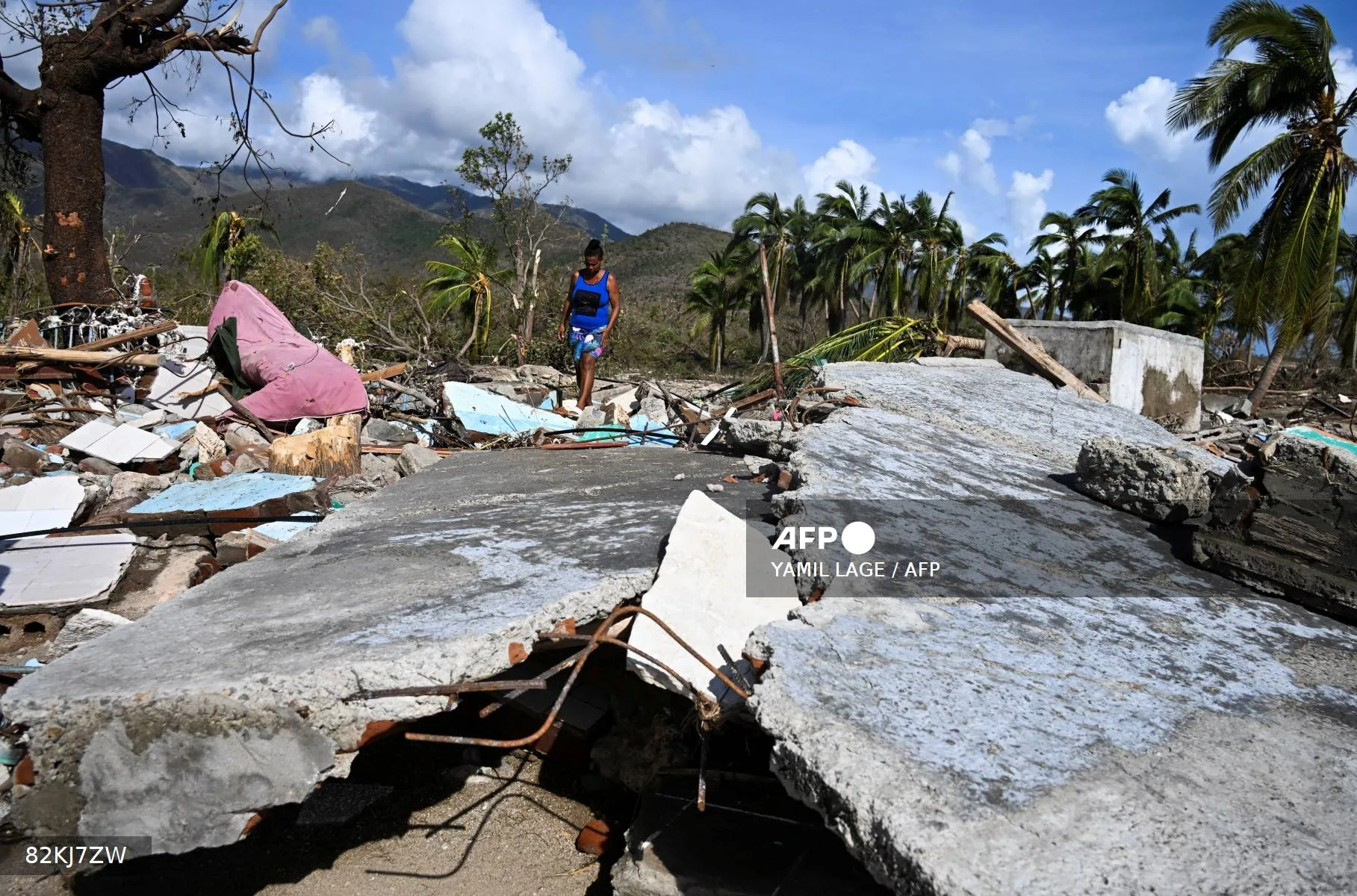The death toll from Hurricane Melissa has climbed to nearly 50 as the powerful storm swept across the Caribbean, leaving widespread devastation in Jamaica, Cuba, and Haiti, before moving toward Bermuda.
According to the U.S. National Hurricane Center (NHC), the Category 5 hurricane recorded sustained winds of up to 155 kilometres per hour, ranking among the most powerful storms in modern history.
In Haiti, officials reported 30 deaths, 20 injuries, and 20 missing persons. Over 1,000 homes were flooded, displacing 16,000 people. In Jamaica, 19 people were confirmed dead, mostly in the parishes of Westmoreland and St. Elizabeth.
Cuba’s eastern provinces—Santiago de Cuba, Holguín, and Guantánamo—were among the worst hit, with more than 700,000 residents evacuated. Power lines, homes, and communication networks were destroyed, worsening the country’s ongoing economic crisis.
The United States and the United Kingdom have mobilised emergency aid, with the U.S. sending disaster response teams and the UK pledging £2.5 million in relief funding.
Experts at Imperial College London said human-induced climate change made Hurricane Melissa four times more likely and intensified its impact.





